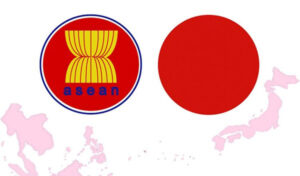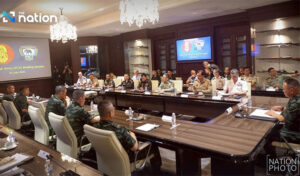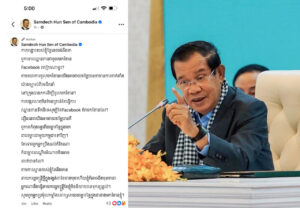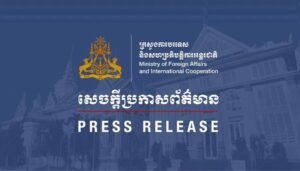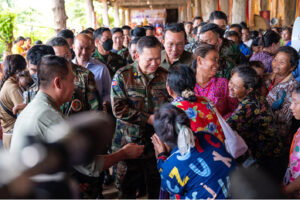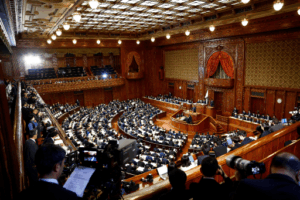How Can Thailand Speak of Diplomatic Ethics and Professionalism? [ Unofficial Translation]
AKP | Phnom Penh, June 21, 2025 –Recently, some Thai officials have used a leaked audio recording to attack Cambodia and, in particular, Samdech Techo Hun Sen—while claiming to uphold diplomatic ethics. Not long ago, they also questioned the professionalism of Cambodian leaders who communicate through Facebook, labeling it unprofessional. They may sound like champions of diplomacy and ethics, but in reality, their actions tell a very different story. Why?
First, in their dealings with Cambodia, Thai authorities have repeatedly resorted to heavy-handed tactics. On May 28, 2025, Thai soldiers unexpectedly entered Cambodian territory and fatally shot a Cambodian soldier. In response, Cambodia issued a strong diplomatic protest, condemning the act as a serious violation and demanding an investigation and justice for the perpetrators. Yet, the Thai government turned a blind eye. Subsequently, they unilaterally closed border gates without notifying Cambodia—a move seen as deeply disrespectful. To make matters worse, instead of resolving the situation through legal and peaceful means, such as the International Court of Justice, Thailand opted to escalate tensions by deploying troops and military equipment to the border. According to the Ministry of National Defence, Thailand has violated Cambodian sovereignty over 600 times. Is this what Thailand considers diplomatic ethics and professionalism?
Second, when it comes to conflict resolution, Cambodian leaders don’t know whom to engage with on the Thai side. The Thai Prime Minister lacks the authority to make independent decisions and must consult with the military—especially on border-related matters. Furthermore, when there are confrontations along the border, the Thai government instead gives the military the right to make decisions. Some Thai commanders, such as the head of the 2nd Military Region, act with aggression and issue war-like threats. Historically, whenever Thailand faces internal political turmoil, it diverts attention by provoking incidents along the Cambodian border, effectively using Cambodia as a scapegoat or bargaining chip. Is this what Thailand considers diplomatic ethics and professionalism?
Third, many Thai media outlets—including those in English—have become tools for spreading false, exaggerated, and damaging information. They routinely publish unsourced stories designed to support military narratives by intimidating, blaming, and slandering Cambodia, especially in attempts to justify the killing of a Cambodian soldier and ongoing aggressive policy. Even when there was a military adjustment on both sides to reduce tension, the Thai military exploited the media to falsely claim that Cambodia agreed to withdraw its troops—an outright violation of agreements. Is this what Thailand considers diplomatic ethics and professionalism?
Fourth, following Thailand’s unilateral closure of the border and Cambodia’s countermeasures—which negatively impacted Thailand’s economic interests—the Thai Prime Minister phoned Samdech Techo Hun Sen, seeking a way to reopen the border without harming her own image. This was clearly an attempt to use sentimental family ties as a tool to gain advantage over Cambodia. Historically, such emotional appeals may have been effective, but they no longer work in the era of Techo-Thipadei leadership. As Samdech Techo Hun Sen stated in the leaked message, Cambodia cannot trade its national interests for the public image of a Thai leader, nor can national interests be compromised for the sake of sentiment. After failing to use emotional leverage, the Thai Prime Minister reportedly became frustrated and accused the Cambodian leader of being unprofessional simply for sharing information on Facebook. Is this what Thailand considers diplomatic ethics and professionalism?
In summary, the leaked phone conversation between Samdech Techo Hun Sen and the Thai Prime Minister is a minor matter compared to the serious violations Thailand has committed against Cambodia. In reality, Thailand has no moral standing to speak of diplomacy or professionalism, having long disregarded both principles. The deterioration in relations between the two countries stems from Thailand’s own actions—beginning with the shooting and killing of a Cambodian soldier, and continuing with repeated hostile behaviour.
It is possible that the leak of the audio message was either unintentional or a form of retaliation by someone who disapproved of Thailand’s conduct. As for Samdech Techo Hun Sen’s decision to release the full message after it was leaked, it was made out of a commitment to transparency—so that the Cambodian people would not suspect him of colluding with a foreign government at the expense of national interests. This act reflects the high sense of responsibility held by Cambodia’s leadership. For Samdech Techo and Samdech Thipadei, nothing stands above the national interest. Their leadership remains firmly committed to defending the dignity, sovereignty, and interests of the Cambodian nation and people.
By H.E. Pen Bona, Minister Delegate Attached to the Prime Minister and Head of the Royal Government Spokesperson Unit

![How Can Thailand Speak of Diplomatic Ethics and Professionalism? [ Unofficial Translation]](https://grandnewsasia.com/app/uploads/2025/06/photo_2025-06-22_14-50-57.jpg)
